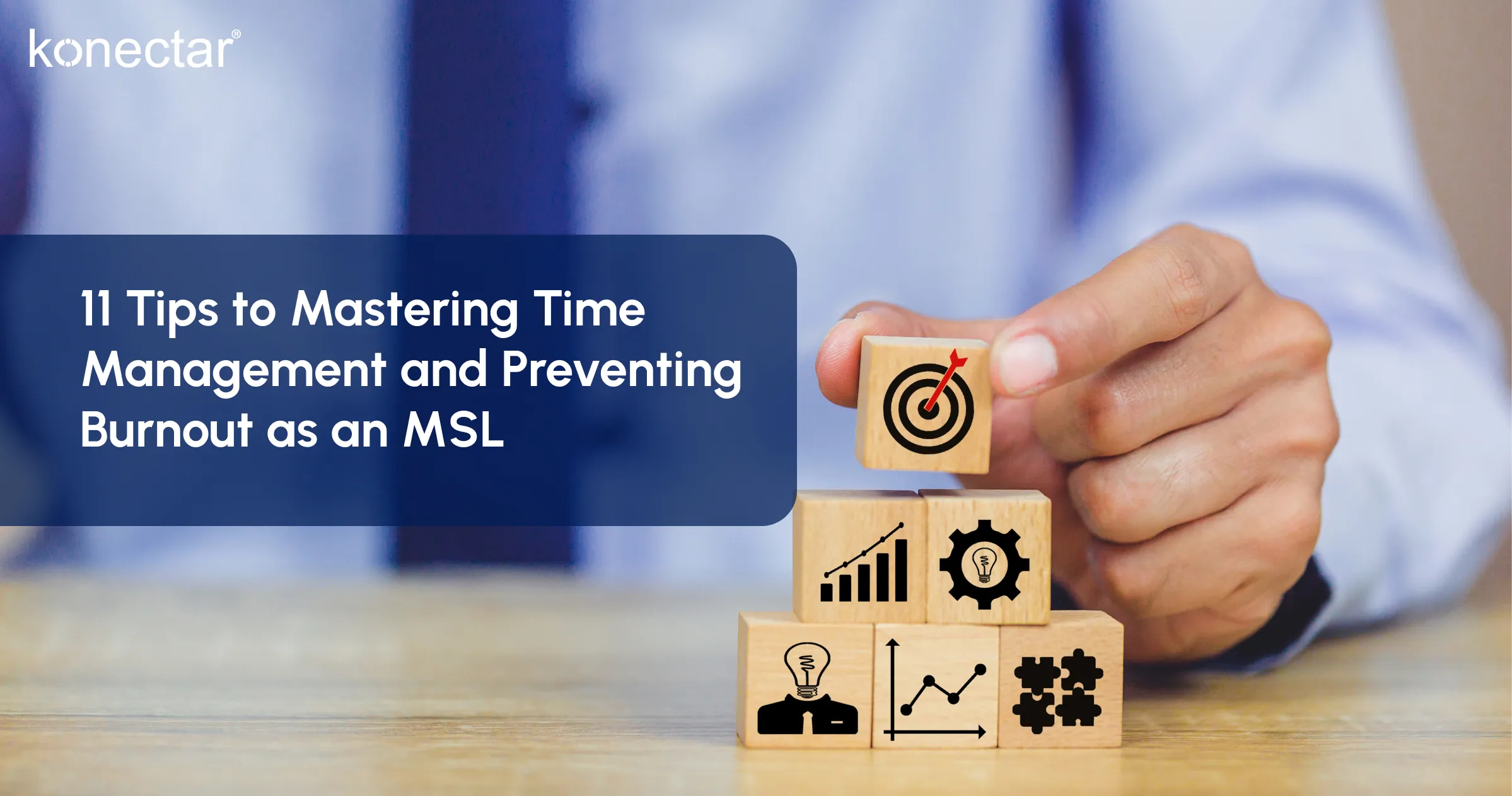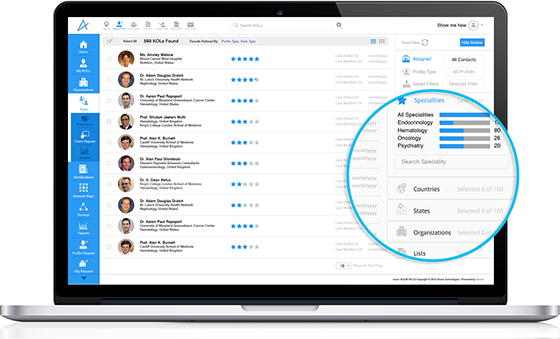27-10-2025
11 Tips to Mastering Time Management and Preventing Burnout as an MSL

It is often emphasized that success as an MSL is built on agility, adapting swiftly to new research, responding to stakeholder needs, and thriving in a landscape of continual change. Yet with every advancement, MSLs face rising demands: packed travel schedules, rapidly evolving therapy areas, and an expectation to deliver scientific value at lightning speed.
So how does an MSL thrive in this environment, staying productive, positive, and resilient? The answer lies in combining innovative time management habits with proactive burnout prevention. In this article, we will explore 11 practical strategies that will help you optimize time, enhance productivity, and prevent burnout.
Reengineer Your Workday Around ‘Energy Peaks’
Forget traditional “to-do” prioritization. Instead, schedule tough scientific discussions, KOL visits, and data review sessions during your personal energy ‘peak’ hours. For some, this may be mid-morning, for others, post-lunch. Track your energy patterns over a week to optimize meeting times and creative tasks. Track your own energy rhythms for a week and adjust meetings and creative projects accordingly.
Block ‘Deep Work’ Time with Zero Notifications
Designate regular blocks (60–90 minutes) for “deep work” critical tasks requiring full attention, such as preparing MSL briefings, reviewing the latest clinical data, or crafting responses to complex scientific queries. Protect this time by muting notifications and notifying colleagues of your unavailability.
Create Thematic Days for Routine Tasks
Instead of spreading routine activities (travel booking, CRM updates, literature reading) throughout the week, batch them into ‘thematic’ days or half-days. For example, set Mondays as “admin catch-up” and Fridays as “field visit prep,” freeing up focused time for impactful scientific engagement.
Micro-Moments for Recovery and Reflection
Long hours on the road or in virtual meetings can drain resilience. Incorporate ‘micro’ recovery techniques such as 5-minute mindfulness breaks after key meetings, quick guided breathing exercises before KOL calls, or simple eye relaxation and blinking exercises between virtual interactions. Use wearables or phone reminders to prompt these mindful pauses throughout your day, helping to sustain focus and reduce fatigue.
Redesign Virtual Engagements
Optimize virtual meetings with KOLs and internal teams by adopting strict agendas, rotating moderators, and encouraging “video optional” policies for long calls. Use asynchronous video updates or pre-recorded presentations to minimize unnecessary meeting time, giving yourself more control over schedule and mental bandwidth.
Leverage AI and Automation Wisely
Modern MSLs can harness digital tools to automate appointment confirmations, use AI-driven CRM analytics to gain insights, record HCP interactions, prioritize follow-ups, or adopt note-taking apps that transcribe scientific discussions. This boosts productivity and frees up cognitive resources for building genuine scientific relationships.
Practice Emotional Boundaries and Purpose Alignment
Set emotional boundaries by clarifying which inquiries require immediate attention and which can wait, especially when managing multiple product portfolios or therapeutic areas. Regularly revisit your personal ‘mission’ as an MSL—scientific education, patient impact, advancement of knowledge, and connect daily tasks with these deeper career goals to sustain motivation.
Foster Community, Recognition, and Peer Support
Burnout risks intensify in siloed roles. Organize monthly peer roundtables, either virtual or in-person, where MSLs share best practices and challenges, reinforcing camaraderie. Celebrate wins, such as successful scientific engagements or published abstracts, with internal shoutouts or “accomplished” lists instead of only focusing on pending tasks.
Embrace “Digital Sunset” Rituals
Disconnect intentionally at the end of the workday. Use features that automatically switch devices and alerts off after hours. Practice “digital sunset” by planning rewarding offline activities such as sports, family time, and creative hobbies each evening, ensuring mental separation between professional and personal roles.
Value PTO and Mental Health Days
Advocate for and make full use of paid time off, including mental health days. Treat these breaks as essential to long-term performance, not “luxuries.” Plan quarterly self-care check-ins to reflect on stress levels and adjust work routines before symptoms of burnout appear.
Develop a Personal Resilience Playbook
Every MSL should develop a personalized “resilience playbook,” a digital or paper document listing top recovery strategies, support contacts, creative outlets, and emergency steps if work starts to feel overwhelming. This toolkit empowers self-awareness and readiness, turning potential burnout into growth opportunities.
Conclusion
Mastering time management as an MSL isn’t just about crossing off tasks, it’s about working smarter, protecting your energy, and staying curious. By blending smart planning, mindful breaks, and a little creative flair, you can tackle packed schedules, deliver scientific impact, and still enjoy the journey along the way.





